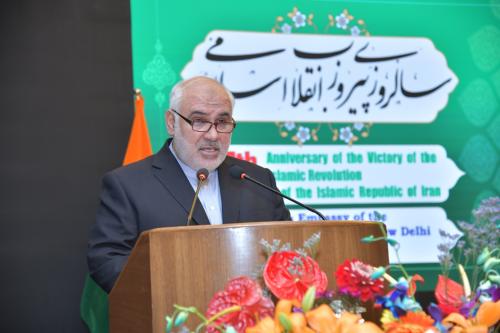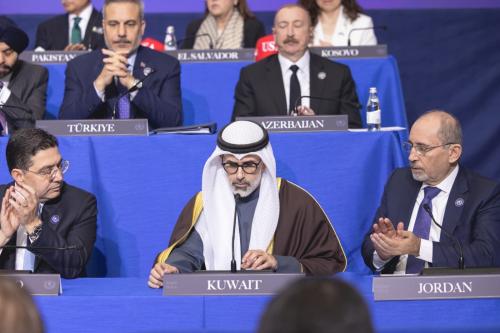KAVYA DUBEY Certain incidents may instigate one to act out of character. How matters unfold thereafter depends significantly on not just the situation but the concerned individuals crucial to those incidents. Things appear to be more alarming when it is not just individuals but groups that behave in ways that call in question the state of general public welfare. When such occurrences repeat, it is time to spare it some elaborate thought. Lately, there has been an unpleasant frequency of unrestrained expression of angst among people from across the country. The reasons behind such destructive eccentricities are as varied and diverse as the very nation and its people. Unrestrained expressions of bigotry, misogyny, communal intolerance, violence, angst, etc., put at the receiving end the most vulnerable members of the society-the economically weaker, women, children, and even animals-strays and neighbour's pets generally. Hate speech may no longer be a rarity in this country; arguably, the conditions for that have been incubated since long before incidents break out and "realities" come to the fore. But it remains significant who such speeches are made by and what authority they hold over the audience. In the closed and safe places of smaller groups where hate speech-like content is freely let out, it amounts to influencing impressionable minds. What might appear as an intellectually and socially hazardous situation could potentially be a nursery for nurturing tolerant and broad-minded citizens that are accepting of alternate ways and views, and contribute constructively to a progressive society. If things start from smaller places, those smaller places need to be those that allow healthy exchange of ideas. But ideals apart, there is a need to look into why at all people give into extreme behaviours, collectively or individually. Whether it was prolonged Muslim appeasement and the inevitable Hindu backlash that has been raging in recent times, conditions for the situation have been hatched systemically for decades together. Any preference for one community over the other is bound to create a disbalance that will reflect socially, and a prolonged situation of this kind brings with it the expected abnormalities such as mobs thrashing and lynching someone (especially if they are a subaltern) at mere suspicion of "offending" acts such as transporting beef. Certainly, the uneducated mob would not know that cow meat was exotic food during Vedic times, long before any "Muslim" ever existed. An immediate method of addressing such chaos is to have specific laws and stricter rules in place that could be promptly implemented, as given that certain types of crimes get more common, the laws and order system must also evolve accordingly. The notions of collective justice, moral policing, and the brazen disrespect for law are also the driving factors of mob violence spiralling out of control. Given these factors, another pertinent question that rears its head: Why would select groups feel entitled to dispense "collective justice" and voluntarily take upon themselves the "responsibility" of moral policing? The root of the matter goes deeper into the social set-up which often justifies a questionable act if it is done by those who enjoy the privilege of greater acceptance in general. A simplest example being young men allowed by family to be out till late in the night, but the rules are different for a young (or any) woman in the same family. Institutionalising inequality is the seed that sprouts notions of entitlement, leading a stronger group or individual to exploit, ill-treat, or even destroy a weaker individual or group. Further, pointing out to the fractured social set-up does not acquit the failing of the more authoritative, pervasive and dominating entity-the state and its system. Frequently occurring aberrant behaviours of individuals are often attributed to stress and anger from prolonged exposure to abusive or toxic environments, disrupted family situations, poor social engagements, financial constraints, critical employment scenarios, substance abuse, and so on. These problems do not happen to be of individual invention. Drug abuse can kill individuals and families but the network of drugs' propagation thrives because of the lapses on the state's part. A toxic environment at home, school, and workplace are often because people seem ignorant that material growth and general wellbeing can both be chosen and achieved together, and there is no method of addressing this. Financial status dictates most social expressions of one's individuality. Pent-up anger and frustration from such things, especially in the urban areas, are released seemingly at random by way of victimising the unsuspecting and weaker-women, children and small animals. As much as there needs to be room for people to safely express themselves, there must also be an environment of acceptance of occasional "abnormalities" of people to be able to address them as required. Being in the know-how of some basic social and psychological first aid is beneficial for both individuals and the society at large. And this is where the state must step in to support independent efforts of groups and individuals to help the society heal. (Kavya Dubey can be reached at kavya.d@ians.in)
Why do people lose it? Or, the causes of anger mismanagement
- by Rinku
- November 07, 2022 2 minutes

Why do people lose it? Or, the causes of anger mismanagement (IANS Column: Beyond The Headline)
How Blockchain-based CBDC and crypto are different
November 07, 2022











